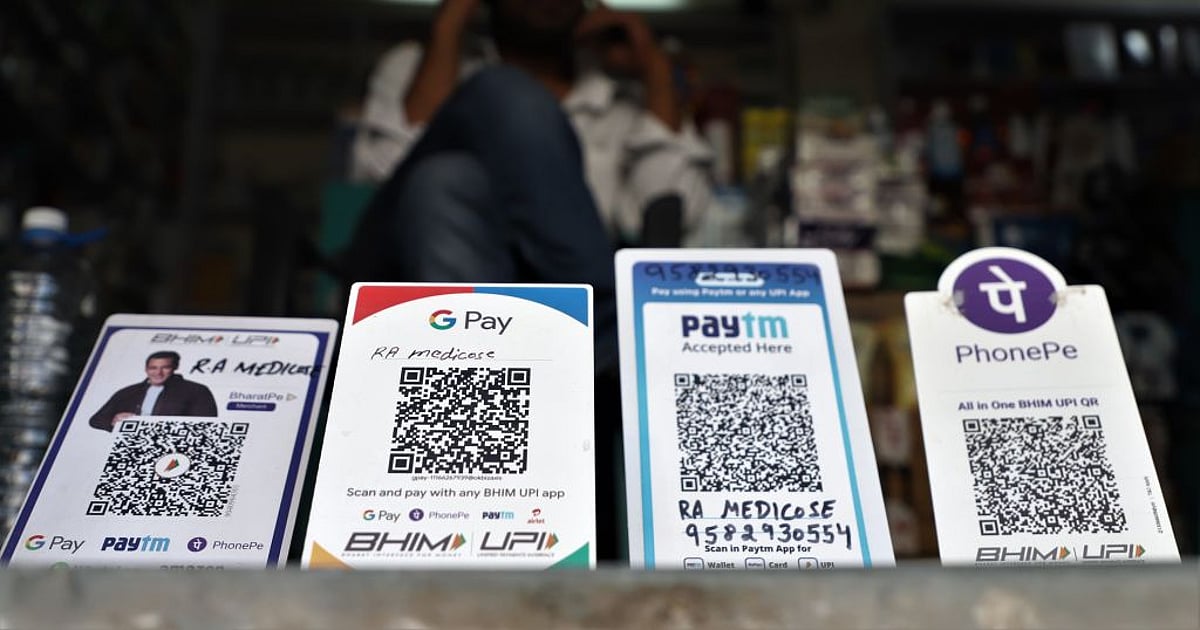
Govt's new fraud alert system blocks scam payments in real-time; here's how it protects UPI transactions
- Select a language for the TTS:
- UK English Female
- UK English Male
- US English Female
- US English Male
- Australian Female
- Australian Male
- Language selected: (auto detect) - EN
Play all audios:

If you're always wary of calls from unknown numbers and fear falling victim to financial scammers preying on gullible users, the government's Fraud Risk Indicator(FRI) offers crucial
protection. This system adds an extra security layer when using digital payment apps like PhonePe, Paytm, or Google Pay.
Here's how it works: If a scammer tricks you into sending money to a phone number flagged as "Very High Risk" (meaning it's been reported for fraudulent activity), the FAS will immediately
warn you through these apps and automatically block the transaction.
In a step towards combating cyber fraud and financial crime, the Department of Telecommunications (DoT) has announced the sharing of FRI with stakeholders. The Ministry of Communications
says the FRI, which is an output from a multi-dimensional analytical tool developed as part of the Digital Intelligence Platform (DIP) to empower financial institutions with advanced
actionable intelligence, boosts cyber protection and validation checks in case of mobile numbers flagged when a digital payment is made to such numbers.
What is the "Financial Fraud Risk Indicator"?
It is a risk-based metric that classifies a mobile number as having been associated with medium, high, or very high risk of financial fraud. This classification is an outcome of inputs
obtained from various stakeholders, including reporting on the Indian Cybercrime Coordination Centre (I4C’s) National Cybercrime Reporting Portal (NCRP), DoT’s Chakshu platform, and
Intelligence shared by banks and financial institutions. It empowers banks, NBFCs, and UPI service providers to prioritise enforcement and take additional customer protection measures in
case a mobile number has a high risk.
The Digital Intelligence Unit (DIU) of DoT regularly shares the list of mobile numbers that were disconnected with banks and other entities, along with the reasons for disconnections, viz.,
found involved in cybercrime, failed re-verification, exceeding prescribed limits. These numbers are also usually used for financial fraud.
As the life of a mobile number that is misused in cyber frauds is generally a few days, and full verification can take several days, an advanced indicator of risk associated with such
numbers is very useful. Thus, as soon as a suspected mobile number is flagged by a stakeholder, it undergoes multi-dimensional analysis and classifies it into "Medium, High, or Very High"
financial risk associated with it. It then shares this assessment about the number immediately with all stakeholders through DIP.
For example, PhonePe has used it to decline transactions linked to "Very High FRI" mobile numbers and display an on-screen alert as part of PhonePe Protect feature.
Leading UPI platforms — PhonePe, Paytm and Google Pay, who collectively account for over 90% of UPI transactions — have begun integrating DIP alerts into their systems. For instance, one of
the leading UPI platforms has introduced transaction delays, with alerts and requiring user confirmations. Other banks are also actively using the data to mitigate cyber fraud.
With UPI being the most preferred payment method across India, this intervention could save millions of citizens from falling prey to cyber fraud, says the ministry, adding that the FRI
allows for swift, targeted, and collaborative action against suspected fraud in both telecom and financial domains.
